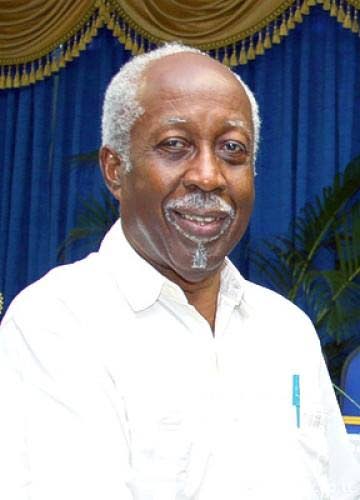Tobago education again

REGINALD DUMAS
NEARLY EIGHT years ago, using official data on TT for the period 2007 to 2013, I wrote an article titled “Education in Tobago.” Information on Tobago in the data wasn’t merely cause for concern; it was cause for fright.
In the CAPE Unit I, Tobago had, in 2011, the country’s lowest pass rate. Over the period in question (2007-2013), it had the second lowest, outdone only by the North Eastern school district of Trinidad. For Unit II, it had the third lowest, joined in the cellar by North Eastern and South Eastern. All three districts fell below the national average.
In the CSEC, Tobago had, over the period, the second lowest average percentage of students passing five or more subjects. Again, North Eastern was last. Again, North Eastern, South Eastern and Tobago had pass rates below the national average. And only in Tobago and North Eastern did fewer than 50 per cent of candidates consistently obtain five or more passes. I wrote: “One school in Tobago was so bad it’s embarrassing.”
Where the SEA was concerned, Tobago, over the period, had the lowest percentage in TT of students scoring above 90 per cent; even North Eastern did better. As for students scoring above 60 per cent, the two districts again occupied the basement, and were well below the national average. Tobago, however, had the lowest percentage of students in this category.
Regarding the percentage of students scoring 30 per cent or less in the SEA, Tobago and North Eastern once more distinguished themselves, occupying the two bottom rungs of the ladder, and significantly in excess of the national average.
In my article, I mentioned a former THA education secretary, who, while conceding that Tobago was underperforming, asserted at the time that “measures were being put in place to correct the problem and…the primary focus would be on making students competitive in a regional and international scenario.” I wrote: “I have no idea what those words mean – after all, the students aren’t competitive now even at the national level.”
And I continued: “(The former secretary) was quoted as speaking about strengthening student support services and assessing and testing children for ‘developmental challenges.’ But there was nothing said (or at least reported) about the roles of parents and civil society generally, about the relevance of the curriculum to Tobago’s progress, about teacher responsibilities and pedagogy, about the physical location and condition of schools and adequacy of equipment, about training students how to think, about how and in what context ‘competitiveness’ is to be achieved, about the widening gender gap in performance, about the gulf between Tobago West and Tobago East, about the sociological and economic significance of the data (which the THA must have), and so on. May I therefore ask how exactly the THA proposes to ‘correct the problem’?”
Nearly eight years have passed. What is the situation today? Alas, fright now borders on terror. In October the Joint Select Committee of Parliament on Human Rights, Equality and Diversity published a report on “The right to equal access to education with specific focus on the underperformance of schools in the Port-of-Spain and Environs District with reference to performance in terminal examinations.” The report makes occasional references to Tobago.
Of TT schools excelling in 2016, Tobago, North Eastern and South Eastern had four, three and four respectively; Victoria, education leader of the national pack as in 2014, had 19. Of schools on academic watch, the three laggards had six, five and ten respectively; Victoria had five. As for the average scores of SEA students, the trio again – if I may be permitted the word – excelled: in 2019. Tobago’s score was 194.416, South Eastern’s 194.216, and North Eastern’s 192.719; they ran last. Victoria, still first, had 208.698.
The JSC report lists several factors contributing to the underperformance of the schools it surveyed: student truancy, lack of parental involvement and of interest in education, low community investment, and so on. Not all the factors would be applicable to Tobago, which has its own particularities, but the new THA administration would be well advised to concentrate early on arresting and reversing what looks very much like an unforced march into educational obscurity. With what implications for Tobago’s development?
Personally, I can say that what little I have achieved professionally has been mainly due to education. It’s a large word, education, with many facets: formal training, observation, discourse, thought, analysis, peer example, and so on. (In TT we associate it firmly, and short-sightedly, with “prestige schools” and exam results.) And too many of us, insensitive by reason of class, ethnicity, region, political persuasion, etc (and combinations thereof), generally fail to see the wood for the trees. Indeed, what wood?


Comments
"Tobago education again"